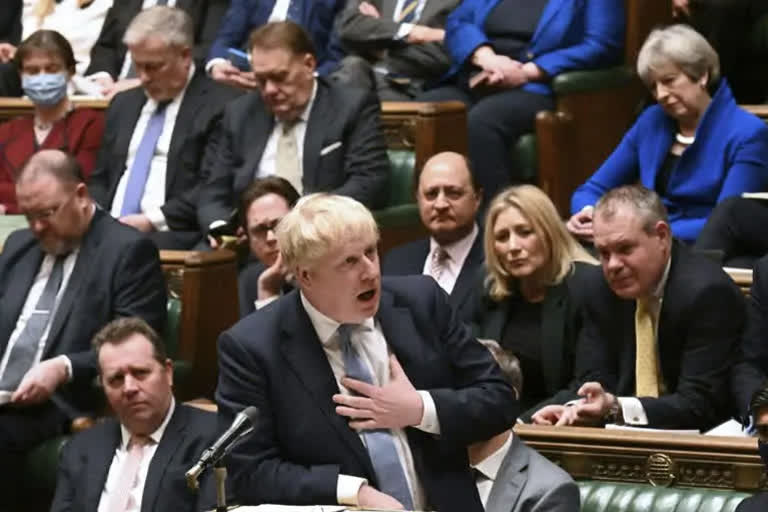London: An opinion poll in Britain amid a grim economic situation and a spiralling tension in Northern Ireland -- says Prime Minister Boris Johnson will lose his House of Commons seat in the next general election. Johnson is an MP from the west London constituency of Uxbridge and Ruislip. The survey of 10,000 respondents carried out by multilevel regression and post-stratification (MRP) in April also looked into the opposition Labour Party's prospects in the election. It found that it would emerge as the single largest party, but fall short of a majority by 18 seats.
On the other hand, if Labour Party undertakes seat adjustments with Liberal Democrats and the Green Party, the combination would win a comfortable majority. The figure of 326 is the magic mark for a party or alliance in a chamber of 650 lawmakers. Correspondingly, if the hard-line pro-Brexit Reform Party stands down in seats where Johnson's Conservative Party is vulnerable, this could further dent Labour's prospects.
A spokesperson for 'Best for Britain', an internationalist organisation, said: "Once again, Best for Britain's seat level analysis shows the safest route to victory in defeating this (Johnson's) corrupt government is for the opposition parties to work together during election time." If Labour Party falls short, it could be dependent on the separatist Scottish National Party, which could demand independence for Scotland or at least another tricky referendum as a condition for its support. Analysis for 'Best for Britain' by Focaldata indicated that 54 per cent of Labour supporters and 56 per cent of Liberal Democrats supporters want their respective leaders to work more closely with the Greens.
However, after its showing in this month's countrywide local elections, Labour Party will hope its chances will progressively improve as Johnson and the Conservatives plummet further in public esteem. Appearing before a House of Commons Select Committee, the Governor of the Bank of England, Britain's central bank, Andrew Bailey warned of "apocalyptic" food prices. He of course blamed it on Russia's invasion of Ukraine. Figures due out on Wednesday are expected to reveal that the annual inflation rate has climbed above 9 per cent and it going beyond 10 per cent when the energy price cap is lifted even more in the autumn.
